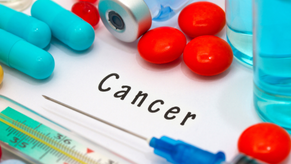What is the Relationship Between Traumatic Experiences and Addiction?
Traumatic experiences can leave deep imprints on an individual's life, affecting their ability to form healthy dynamics in relationships. According to Gabor Maté's work, trauma can lead to lasting changes in a person's psychological structure and nervous system, damaging their sense of trust and self-esteem (Maté, 2008). This can make it difficult for the individual to establish healthy relationships and may lead them to develop dependent relationships.
The Role of Trauma in Dependent Relationships
Trauma can cause a person to lose confidence in themselves and become excessively dependent on the approval of others. Gabor Maté notes that the marks left by trauma in a person's subjective world create a lasting fracture in their life, which can manifest as pathological behaviors like dependency in relationships (Maté, 2010). Due to their lack of self-confidence, the person becomes overly reliant on external validation and support, leading them to pursue dependent rather than healthy relationships (Perry & Szalavitz, 2006).
The Impact of Traumatic Relationships on Addiction
Traumatic relationships can emotionally drain an individual and make them more prone to addiction. To ease or avoid the pain caused by trauma, the person may turn to addictive behaviors. These addictions can take various forms, such as substance abuse, shopping addiction, or relationship dependency (van der Kolk, 2015). According to Maté, addiction can develop as a result of trauma, with the individual using these addictions as a temporary means to soothe the emotional pain caused by the trauma (Maté, 2018).
The Cycle of Repeated Trauma
Trauma can create a repeating cycle in an individual's relationships. For example, someone who experiences a traumatic relationship during childhood may find themselves in similar dynamics in their adult relationships. This cycle leads to the person re-experiencing their traumatic experiences and struggling to overcome the effects of the trauma (Cloitre et al., 2009). Breaking this cycle is crucial for the individual to regain the capacity to form healthy relationships.
Conclusion: Healing Trauma and Overcoming Addiction
It is possible to overcome the effects of traumatic experiences and break free from the bondage of dependent relationships. As emphasized in Gabor Maté's work, healing from trauma allows an individual to regain emotional health and form healthier, more independent relationships (Maté, 2010). This process can be supported through therapeutic interventions and conscious awareness.
References:
- Maté, G. (2008). *In the Realm of Hungry Ghosts: Close Encounters with Addiction*. Vintage Canada.
- Maté, G. (2010). *When the Body Says No: Exploring the Stress-Disease Connection*. John Wiley & Sons.
- Maté, G. (2018). *The Myth of Normal: Trauma, Illness, and Healing in a Toxic Culture*. Penguin Random House.
- Perry, B. D., & Szalavitz, M. (2006). *The Boy Who Was Raised as a Dog: And Other Stories from a Child Psychiatrist’s Notebook*. Basic Books.
- van der Kolk, B. A. (2015). *The Body Keeps the Score: Brain, Mind, and Body in the Healing of Trauma*. Penguin Books.
- Cloitre, M., Stovall-McClough, K. C., Zorbas, P., & Charuvastra, A. (2009). Attachment Organization, Emotion Regulation, and Expectations of Support in a Clinical Sample of Women with Childhood Abuse Histories. *Journal of Traumatic Stress*, 22(2), 175-184.







